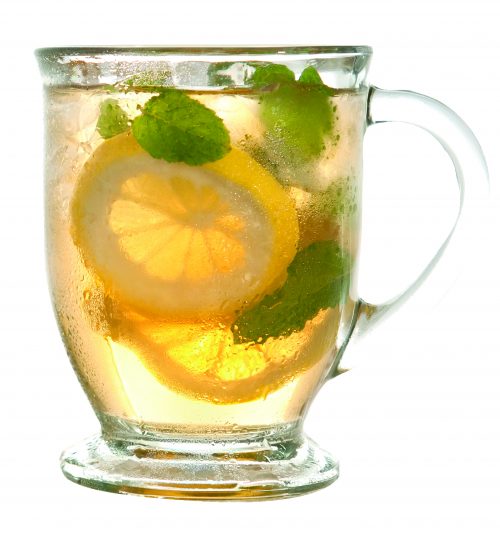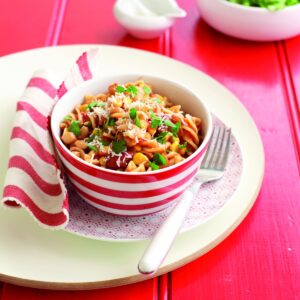
It’s cold and flu season — Niki Bezzant explores the links between food and seasonal ills.
It’s that time of year again — the bugs are going around, workplaces are full of coughs and sneezes, kids are coming home sniffly and it seems impossible to avoid coming down with something.
It can seem as if some people get colds and flu all the time and others never do. Is it just the luck of the draw? This might be partly the reason. Those of us exposed to more germs — schoolteachers, for example — are at higher risk of picking up a cold or flu. But, as with other illnesses, how well you are generally can affect how likely you are to get sick, and how well you recover. A healthy diet and lifestyle can boost immunity, while a poor diet, stress, lack of sleep and exercise can lower immunity, making us more susceptible.
Colds can be caused by one of more than 200 different viruses, and once the virus reaches the nasal passages, the healthy immune system will respond.
Kids are more susceptible to colds and can average between six to eight colds each year while adults average two to four. Older people and others with a weakened immune system are also more susceptible.
The flu, also a viral infection, can affect anyone, no matter how healthy they are. Although people with underlying health conditions are most at risk from complications associated with the flu, healthy people can still become seriously ill or die.
So can food stop us getting a cold or flu?
The short answer is no. However, eating well can boost your immunity so if you do get a cold or flu, it may not be as serious. Plenty of vegetables and fruit, lean protein and healthy fats are all important. Foods providing iron, zinc and vitamins A, C, E, B6 and B12 support your immunity. Limiting alcohol and caffeine and avoiding smoking also boosts immunity.
People who exercise regularly are less likely to get colds and other respiratory infections and, when they do succumb, the symptoms are less severe. Exercise also helps manage stress and enhance sleep, two factors which affect our immunity. The flipside is that immediately following a session of intense physical exercise we are actually more susceptible to a respiratory infection.
As far as supplements go, the evidence is fairly patchy. Despite what we may read in advertisements or online, echinacea might have only a slight effect on preventing or treating a cold; the results are, so far, statistically insignificant. Vitamin C, long thought of as a cold remedy, does not seem to reduce the incidence of colds, although it might slightly shorten their duration. The exception is for those under extreme physical stress, for whom vitamin C appears to halve the risk of developing a cold. Zinc may also slightly shorten the duration of a cold.
Cold and flu myths
Will chicken soup cure my cold?
Probably not, but it is soothing and comforting and can contain useful nutrients and vegetables, so it’s a good food to have if you’re feeling poorly. A study in 2000 found chicken soup to be anti-inflammatory; not much has emerged since then, but at the very least it will be good for the soul.
Will the flu jab give me the flu?
No. The vaccine doesn’t contain any live viruses. Some people experience mild side effects such as muscle aches or headaches for a short time after the jab; this is normal. The flu vaccination is highly recommended and is free for people most at risk. (See www.fightflu.co.nz for more information.)
Should you feed a cold and starve a fever?
This old advice is probably not quite right. When you’re sick, fluids are the most important, especially if you have a fever, as you’re more prone to dehydration. Sipping fluids helps keep the lining of your nose and throat passages moist and the mucus fluid. Warm fluids, such as hot water with lemon and honey, can help to clear nasal passages and may soothe a sore throat. Herbal teas, juice, water and soups help keep fluids up, but try to limit or avoid caffeinated drinks and alcohol, which can be dehydrating. When it comes to food, go for nutrient-dense foods such as porridge, fruit smoothies or vegetable soup with dry wholegrain toast.
How not to catch a cold
-
Cold and flu viruses spread in droplets of moisture from breathing, coughing and sneezing. If we touch droplets which contain the virus, then touch our mouth, nose or eyes before washing our hands, we inoculate ourselves with the virus. The most important way to cut down on the spread of colds and flu is to wash our hands frequently. Alcohol-based hand sanitisers are useful when we can’t get to a bathroom.
-
Rhinoviruses, which account for around 50 per cent of colds, can live for up to three hours on our skin and on objects such as door knobs, telephones, light switches and stair rails. Disinfecting these surfaces could help prevent a virus spreading.
- When children have colds, teach them to cover their nose and mouth when sneezing, and to wash their hands frequently. Toys may need washing, too.
www.healthyfood.com











